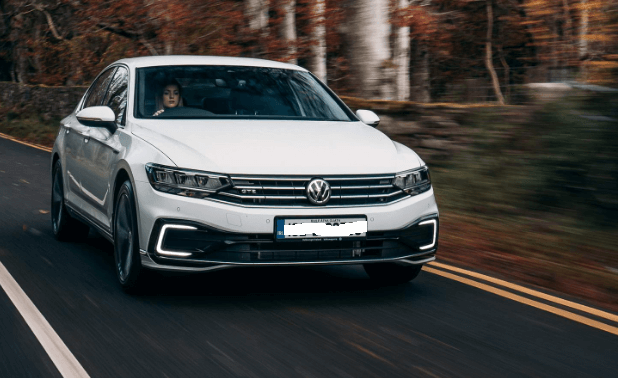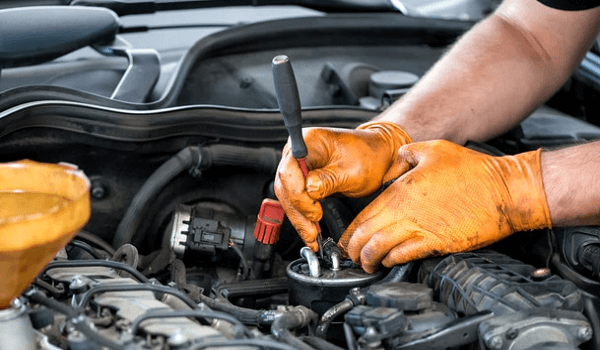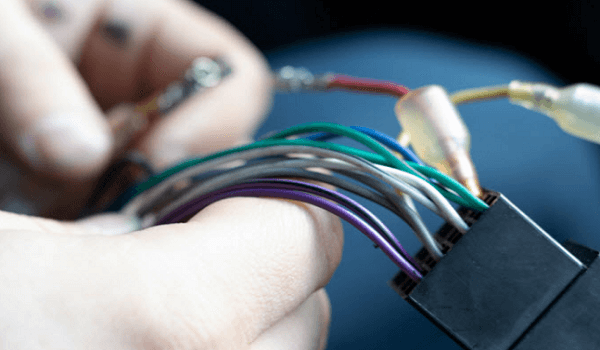There is no definitive answer as to why Volkswagen vehicles are considered unreliable, as the brand has had a variety of issues over the years.
Some of the main factors that have contributed to this perception include quality control issues, problems with certain models or parts, and a lack of reliability in certain areas.
Additionally, the diesel emissions scandal that occurred in 2015 had a significant negative impact on Volkswagen’s reputation for reliability.
However, it should be noted that not all Volkswagen vehicles are unreliable and the company has made efforts to improve the reliability and quality of its vehicles.
Why Are Volkswagen Cars so Unreliable: Here are 10 Reasons
There are several reasons that have contributed to the perception that Volkswagen vehicles are unreliable:

Reliability Is a Three-Part Rule
There are several reasons why Volkswagen may be considered unreliable by some consumers. One reason may be the quality of the components and materials used in their vehicles. Additionally, manufacturing and assembly processes may also contribute to reliability issues.
Finally, the overall design and engineering of the vehicles may also play a role.
However, it’s important to note that every car brand has its own set of problems. Also, reliability can vary from model to model and even between different production years of the same model.
Complicate Maintenance

Another reason why Volkswagen may be considered unreliable by some consumers is the complexity of maintenance and repairs. Volkswagen vehicles are known for their advanced engineering and technology, which can make maintenance and repairs more challenging and costly.
Additionally, certain components, such as diesel engines and turbocharged engines, may require specialized knowledge and equipment to service.
This complexity can make it difficult for some mechanics to diagnose and fix problems, which can lead to longer repair times and higher costs.
Additionally, the complexity of the engine and transmission systems can cause issues that may be hard to repair. This can further contribute to Volkswagen’s reputation for being unreliable.
Unreliable Reputation of the Past
In 2015, Volkswagen was found to have installed software in its diesel vehicles that cheated emissions tests, causing them to emit more pollutants than allowed by law. This led to a significant loss of trust in the brand and damaged its reputation for reliability and honesty.
Additionally, the scandal led to a number of recalls and lawsuits, which further damaged the company’s reputation.
The impact of this event is still felt today and has significantly affected Volkswagen’s reputation and sales.
This event, known as “Dieselgate” has become synonymous with Volkswagen and is a major contributing factor to its current reputation as an unreliable automaker.
Prioritizes Efficiency
Volkswagen designs its vehicles with a focus on fuel efficiency and weight reduction, which can lead to some components being more fragile and prone to failure.
The use of advanced engineering and technology in its vehicles can make them more complex, which can lead to more maintenance and repair issues.
The company’s focus on efficiency may have led to cutting costs on some components which may lead to a lack of durability and reliability.
This approach is not unique to Volkswagen, as many other carmakers also prioritize efficiency over durability in order to meet emissions and fuel economy standards.
Electrical Issues

Many Volkswagen models have been known to have problems with their electrical systems, including issues with the battery, alternator, and power steering.
These issues can be caused by a variety of factors, such as faulty wiring, poor manufacturing quality, and software problems.
These issues can be difficult and expensive to repair, and may also cause other problems with the vehicle, such as power loss, or unexpected shutdowns.
Furthermore, as technology in cars is becoming more advanced and complex, electrical issues are becoming more common, and Volkswagen, like other manufacturers, is not immune to these problems.
Volkswagens Recall Covers Multiple Models
A recall is a notice given by a manufacturer to inform the owners of a vehicle of a defect or problem that needs to be fixed.
Recalls can occur for a variety of reasons, such as safety concerns, emissions issues, or problems with the vehicle’s performance.
Volkswagen has had to recall multiple models for various issues, such as faulty software, emissions problems, and issues with the airbags, transmission, and fuel systems.
These recalls can cause inconvenience and added expense for owners, as well as further damage the brand’s reputation for reliability.
Furthermore, multiple recalls can indicate a deeper systemic problem within the manufacturing or design process of the company.
Built for Affordability
Another reason why Volkswagen may be considered unreliable by some consumers is that the company prioritizes affordability over durability. Volkswagen is known for building vehicles that are affordable for the average consumer.
However, this approach can sometimes come at the cost of durability and reliability.
To keep costs down, Volkswagen may use lower-quality materials or less robust manufacturing processes, which can lead to more frequent problems and breakdowns.
The company may also cut costs on certain features or components that are not essential to the basic functioning of the vehicle, but that can contribute to its durability and reliability over time.
This approach can help Volkswagen offer more affordable vehicles but it can also lead to reliability issues.
Has a Legacy of Timing Gear Failures
The legacy of timing gear failures that some of their models have been known to experience. The timing gear system is responsible for synchronizing the movement of the engine’s valves with the movement of the pistons, and it is a crucial component in the engine’s operation.
Volkswagen models have been known to experience failures in this system, which can cause significant damage to the engine and lead to costly repairs.
These failures can be caused by a variety of factors, such as manufacturing defects, poor quality control, or problems with the design of the timing gear system.
This legacy of timing gear failures can be a significant contributor to Volkswagen’s reputation for being unreliable, as it can cause unexpected breakdowns, costly repairs, and safety concerns.
Volkswagens Can’t Tolerate Neglect
The vehicles are not tolerant of neglect or lack of proper maintenance. Volkswagen vehicles are known for their advanced engineering and technology, which can make maintenance and repairs more challenging and costly.
Certain components, such as diesel engines and turbocharged engines, may require specialized knowledge and equipment to service.
If these vehicles are not properly maintained or serviced, it can cause serious issues and costly repairs. Neglect can also lead to issues with the electrical systems, software, and other components.
It’s important for Volkswagen vehicle owners to follow the recommended maintenance schedule and promptly address any issues that arise.
Japanese Reliability Has Become the Standard
Another reason why Volkswagen may be considered unreliable by some consumers is that Japanese reliability has become the standard in the automotive industry.
Many Japanese car manufacturers such as Honda, Toyota, and Subaru have established a reputation for building vehicles that are reliable, durable, and long-lasting.
These manufacturers have established a reputation for quality control and attention to detail, which has resulted in vehicles that are known for their low maintenance costs, and infrequent breakdowns.
This has set a high bar for other manufacturers to meet, and as a result, consumers may perceive Volkswagen as unreliable in comparison.
The perception of reliability can also be influenced by the marketing and advertising of these manufacturers, which can further solidify their reputation for reliability in the minds of consumers.
Why Did VW Fail in the US?
Volkswagen (VW) failed in the US due to the “dieselgate” scandal in which the company was found to have installed illegal software in their diesel vehicles that allowed them to cheat emissions tests.
This resulted in the vehicles emitting pollutants at levels much higher than allowed by law.
The violation of the Clean Air Act led to investigations and penalties by regulators, as well as a loss of consumer trust and a decline in sales.
In September 2015, the EPA announced that Volkswagen had violated the Clean Air Act by installing illegal software into their diesel vehicles.
Why Are People Obsessed with Volkswagen?
People may be obsessed with Volkswagen (VW) for a number of reasons. One reason could be the reputation of German engineering and the quality of their vehicles.
VW has a history of producing well-built, sturdy vehicles that perform well on the road and have a reputation for durability.
VW cars have a reputation for having high-quality interiors and good design. Some people may also appreciate the company’s commitment to innovation and technology, such as their efforts in electric and autonomous vehicles.
Additionally, some people may have a sentimental attachment to the brand and have had good experiences with their VW cars over the years. Volkswagens has a long history and has produced some iconic models such as the Beetle, Golf, Polo, etc. that have a cult following among its fans.
Are Volkswagens Really That Unreliable?
It is not accurate to say that all Volkswagen vehicles are unreliable. Like any automaker, the reliability of Volkswagen vehicles can vary depending on the specific model and individual vehicle.
Some Volkswagen models have historically had higher rates of problems and complaints, while others have received good reliability ratings.
Additionally, reliability can also be affected by factors such as maintenance and usage of the vehicle. However, overall, Volkswagen’s reputation for reliability may have been affected by the “dieselgate” scandal, which led to a decline in consumer trust.
But It’s worth noting that the company has improved the quality and reliability of its cars over the years, and some recent models have received good reviews for reliability.
Do Volkswagens Have a Lot of Problems?
Some of the common issues that have been reported in some Volkswagen models include electrical problems, ABS failures, transmission issues, and ignition problems.
However, it’s worth noting that the frequency and severity of these problems can vary depending on the specific model and year of the vehicle, and many of these issues may not be experienced by all Volkswagen owners.
Additionally, many of these issues may also be related to specific production runs or individual vehicles, rather than being a widespread problem across all Volkswagen models.
Summary: Why is Volkswagen so Unreliable
Volkswagen is considered unreliable by some consumers for various reasons. One reason is the quality of the components and materials used in their vehicles, which can lead to reliability issues.
The manufacturing and assembly processes, as well as the overall design and engineering of the vehicles, can also contribute to reliability issues.
Another reason is the complexity of maintenance and repairs, which can make it difficult for some mechanics to diagnose and fix problems.
The company’s reputation from the past, particularly the emissions scandal, has also contributed to its reputation for being unreliable.
The company prioritizes efficiency over durability, which can lead to more fragile components, and the company’s focus on affordability can sometimes come at the cost of durability and reliability.
Some Volkswagen models have been known to experience timing gear failures and electrical issues, which can be difficult and expensive to repair.
Lastly, the high standards set by Japanese car manufacturers have established a perception of reliability that other manufacturers have to meet, and Volkswagen may fall short in comparison.
Related:
- Are Volkswagen Good Cars?
- Are Volkswagen Expensive to Maintain?
- Why Are Volkswagen Oil Changes So Expensive?
- Why Are Volkswagen Vans So Expensive?
- Why Are Volkswagen Beetles So Expensive?
- Volkswagen’s Most Expensive Cars